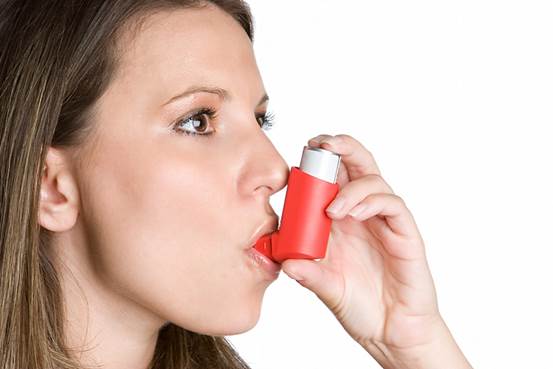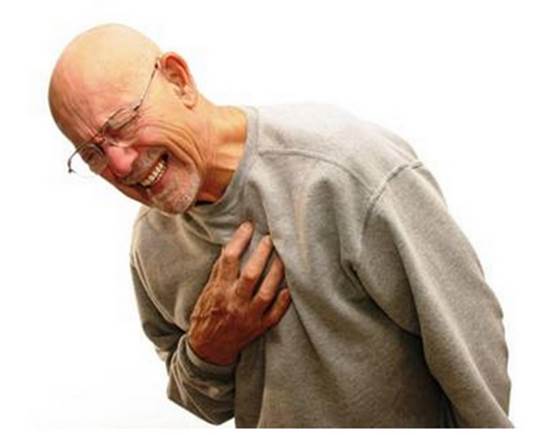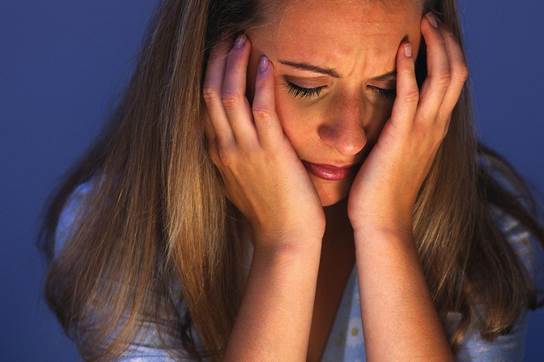Your body clock, or circadian rhythm,
affects more than just your sleep patterns
You know that if your head aches at around
6pm, it’s probably because you’ve been staring at a computer screen all day
(and may need to get your eyes checked), but why do asthma sufferers have
attacks more often in the early hours of the morning and why does your skin
itch more at night? It’s because health problems can be affected by both our
environment and our body clocks. Here are 10 conditions that peak at certain times
and how you can reduce your risk if you suffer any of them.
4am to 6am: Asthma attacks
You're 100 times more likely to have an
asthma attack between 4am and 6am than at any other point in the day. This is
partly because a drop in the hormone adrenaline narrows your airways, but also
because you can be sharing your bed with up to two million dust mites -
exposure to mite droppings can trigger an attack. You can beat the peak by
taking preventative medication mid-afternoon or early evening. This ensures
it's at full strength in the early hours. Also, stop making your bed, advises
Carol Parr, a Sydney-based indoor allergen specialist. "Light and
ventilation are conditions unfavorable to dust mites." Parr also
recommends replacing pillows regularly. "Or use dust mite pillow
protectors," she says. "Your nose is pressed up against the pillow
all night and 50 per cent of dust mites are found in bedding."

3am to Sam: Toothache
Toothache occurs twice as often between 3am
and Sam than between 3pm and 8pm, says chronobiologist Dr. Michael Smolensky,
co-author of The Body Clock Guide to Better
Health (Henry Holt, $27.99). 'This might be tied to the body's secretion
of a key inflammation-fighting hormone, Cortisol, which is virtually absent at
night," explains Smolensky. One of the best solutions for the problem is
aspirin, and it seems to soothe tooth pain better in the early hours than in
the latter half of the day. Just make sure you eat before you pop the pills, as
it's a bad idea to take aspirin on an empty stomach.
4am to 9am: Migraine
The peak time for migraines is between 4am
and 9am, US scientists found. One theory is that blood pressure rises at about
this point, which causes blood vessels to open and enlarging blood vessels are
linked to migraine onset. The earlier you treat migraine the better, but that's
not easy if you're asleep when symptoms start. If you regularly suffer from
migraines at night, ask your GP about preventative treatments.
6am to 10am: Heart attacks
Rapidly rising blood pressure, low levels
of the proteins controlling the heart rhythm and sluggish activity in the cells
that prevent blood clotting mean there's at least a 40 per cent higher chance
of having a heart attack between 6am and 10am than any other time of day, say
studies. Spanish researchers have also found that heart attacks occurring at
this time are more damaging. 'Levels of proteins called salvage kinases are
lowest in the morning - these protect the heart from damage," says
Professor Borja Ibanez of Carlos III University of Madrid. Exactly how to
counteract this isn't known yet, but if you're taking medication for heart risk
factors, such as high blood pressure or high cholesterol, some say taking them
before bed may offer higher protection.

8am to 11am: Head colds
When you're trying to decide whether to use
a sick day on your sniffles, remember: cold symptoms are worse in the morning.
Studies on cold virus sufferers found symptoms were worse between Sam and 11am.
Low overnight levels of Cortisol, a key inflammation-fighting hormone, are to
blame. Most cold symptoms are caused by an inflammatory reaction to your body
fighting the virus. With no Cortisol to dampen that, symptoms worsen.
"Nasal passages also normally shrink at night and relax in the
daytime," says Smolensky. This produces more secretions overnight. The
good news is, modern cold treatments work quickly!
3pm to 6pm: Panic attacks
According to a study carried out by
Professor Oliver Cameron at the University of Michigan, panic attacks and other
anxiety symptoms tend to peak. In the late afternoon and evenings. He says this
could simply be down to the fact that stress builds up around this time - and
stress makes panic attacks worse. But the possibility I would favor would be
that there are as yet undiscovered physiological changes related to panic
attacks that peak in the afternoon or evening, he says. Because of this
Professor Cameron suggests trying some regular calming tactics throughout the
day rather than focusing your attention on a potential mid-afternoon peak.

3pm to 9pm: Epilepsy
The most common form of epilepsy involves
seizures triggered. In the part of the brain called the temporal lobe.
According to Professor Mark Quigg from the University of Virginia in the US,
3pm to 9pm is the prime time for seizures to occur in this type of epilepsy.
“We don’t know exactly why, but we know it has something to do with our
internal circadian clock rather than anything happening in the environment at
that time of day, he says. “This is different from frontal lobe epilepsy where
sufferers are more likely to experience seizures in their sleep. With those we
believe it’s something to do with the way the brain synchronizes during non-REM
sleep that triggers large amounts of neurons to fire together.” Because the
mechanism isn’t quite known yet, Quigg is reluctant to give advice on the
timing of medication and recommends sufferers consult their GP. “Some experts
do believe many people could benefit from timing their medication correctly and
it may be people with frontal lobe epilepsy, for example, who might benefit
from higher doses at bed time,” he adds.
7pm to 11pm: Itchy skin
Conditions such as eczema and dermatitis
tend to be at their itchiest at night. Gil Yosipovitch, Professor of
Dermatology at the Wake Forest University in North Carolina, believes one of
the reasons is that more water is lost from the skin at night, which alone can
encourage itching. But it also indicates the skin’s barrier is weakened, which
might increase the chance of irritants getting into the skin and triggering
reactions. Also, the skin heats up at night and you’re more likely to feel
itchy when it’s hot. However, the good news is the skin is also most absorbent
at night, so any treatments applied at this time are likely to calm down any
itchiness and irritation quickly and effectively.

8pm to midnight: Osteoarthritis
While some people do find the pain worse in
the mornings, studies at Canada's University of Western Ontario found most
osteoarthritis sufferers experienced more pain between 8pm and midnight.
Interestingly, many people reported that the pain peaked regularly on the same
day of the week as well. Osteoarthritis seems to occur as a result of wear and
tear on the joints. So maybe the joints are tired at the end of the day, or
we're worn out and more likely to notice pain.
When it comes to treatment, if you're
taking long-acting medicines, pain relief seems to have the same effect whether
you take it in the morning or evening, but taking it in the evening seems to
cause fewer side effects.
8pm to 2am: Heartburn
Heartburn can occur after any meal but is
three times more common after an evening meal than breakfast or lunch. Sleeping
can be disrupted because stomach acid production increases between 10pm to 2am,
says Smolensky. He says night-time sufferers should take medication in the
evening and don't forget heartburn can be worse if you sleep on your right side
as this increases the risk of acid leaving the stomach. Try to sleep slightly
upright, or on your left side.